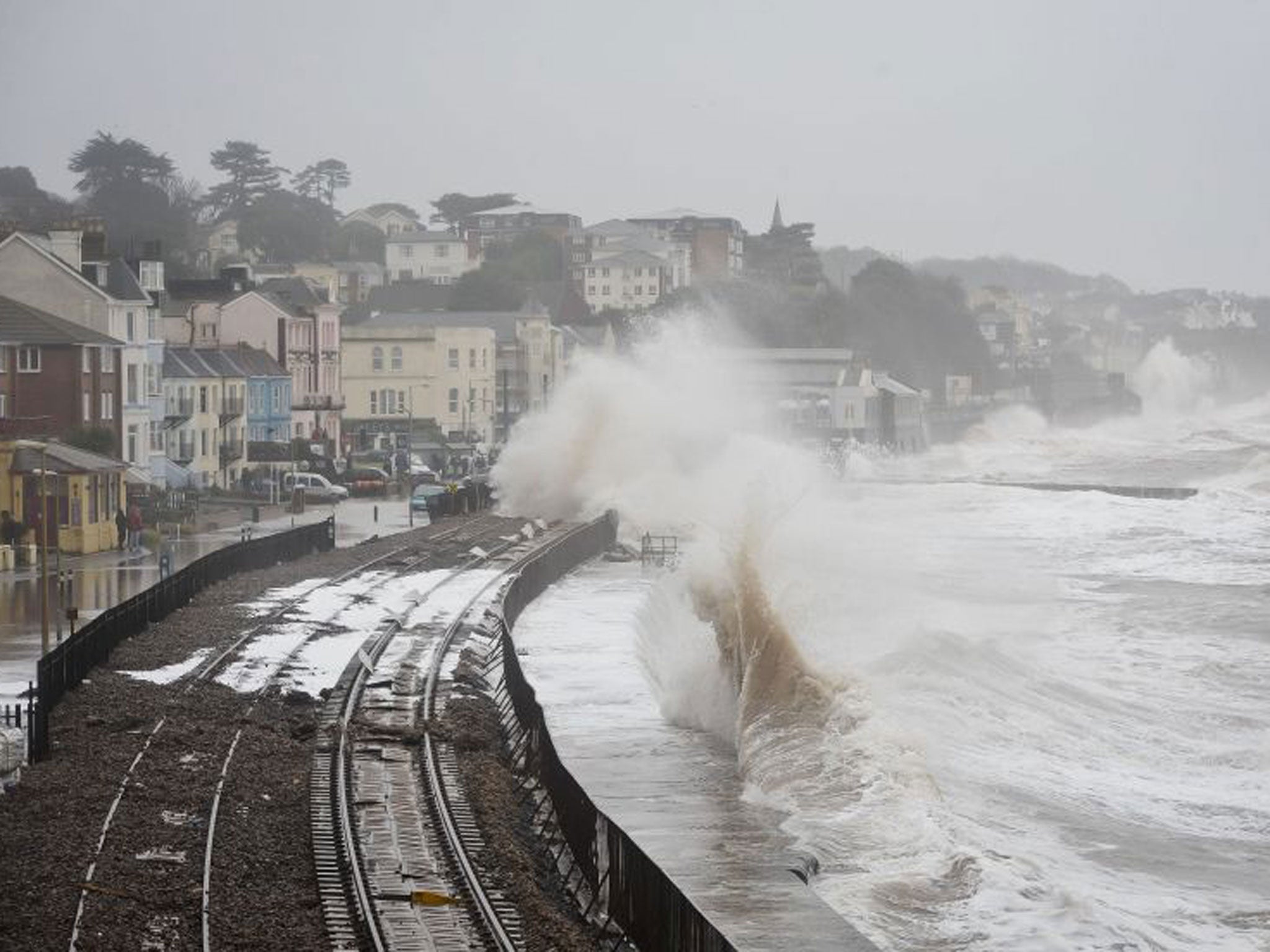New £80m sea wall planned in Dawlish to protect trains from waves
Rail campaigners have long argued that the money would be better spent on reinstating inland route from Exeter to Plymouth

Five years after western Devon and Cornwall were cut off from the rest of the UK by rail, the government has promised £80m for a new sea wall at Dawlish.
A storm in February 2014 severed the Great Western Railway from Exeter to Plymouth. The main line from London to Penzance clings to the coast and is exceptionally vulnerable to seawater.
During the storm, the railway sleepers became driftwood, leaving the tracks suspended in mid-air. No more trains would pass through for two months until the 100ft gap in Brunel’s handiwork was repaired at a cost of £40m.
Now, the Department for Transport has announced further funding of up to £80m “to deliver a new sea wall at Dawlish, providing better protection for the railway and homes behind it”.
“This will help ensure the serious damage and disruption seen during storms in 2014 is not repeated,” the DfT says.
Grayling's biggest failings
Show all 8
But rail campaigners have long argued that the money would be better spent on reinstating the London and South Western Railway from Exeter via Crediton, Okehampton and Tavistock to Plymouth.
The inland route is far less vulnerable to inclement weather.
It was closed as part of the wholesale dismantling of the rail network in the late 1960s.
Half a century on, over half of the line still carries trains: Okehampton has a link from Exeter, while Bere Alston near Tavistock is connected to Plymouth. But the cost of reinstating the missing portion around the fringes of Dartmoor would run into hundreds of millions of pounds.
The transport secretary, Chris Grayling, said: “We cannot allow the disruption and damage endured by Dawlish and the south west to happen again.
“This significant investment demonstrates our cast-iron commitment to delivering a resilient and safe railway, giving passengers, businesses and residents confidence in a reliable service.”
Work on the new sea wall will begin in the spring and is expected to be complete by 2021.
Subscribe to Independent Premium to bookmark this article
Want to bookmark your favourite articles and stories to read or reference later? Start your Independent Premium subscription today.

Join our commenting forum
Join thought-provoking conversations, follow other Independent readers and see their replies